
Samuel review advocates better way to address threats to Australia’s natural wonders
A review of Australia’s EPBC Act finds it is failing to address the main threats to nature.

A review of Australia’s EPBC Act finds it is failing to address the main threats to nature.

The Invasive Species Council welcomes the Victorian Supreme Court’s decision to protect the Alpine National Park from growing horse impacts but is concerned the possibility of further legal action will delay the inevitable.

Those opposed to action on Victoria’s feral horse problem are back in court today, a last ditch effort to delay the inevitable.

Resignation of top scientists puts spotlight on refusal to take scientific advice about the environmental disaster that will unfold as a result of Snowy 2.0.
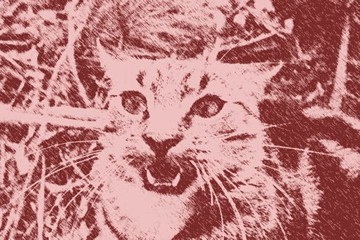
The dumping of a proposed import levy is a huge setback for Australia’s biosecurity system.

Parks Victoria will fully reinstate its feral horse control efforts to help limit escalating horse damage in the bushfire affected Australian Alps after success in a federal court case.
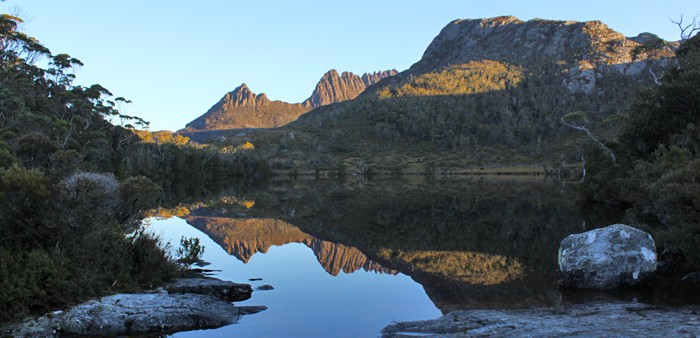
The Tasmanian government must develop a comprehensive feral deer management strategy that reduces the destructive impacts of deer and protects the environment and farmers.
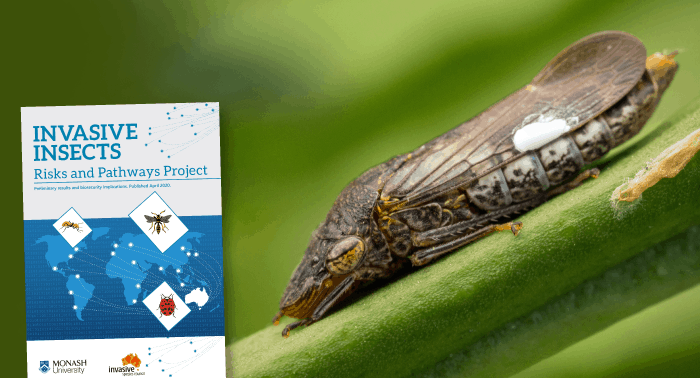
Our joint report with Monash University reveals environmentally destructive ants, bees and wasps could be hitching a ride into Australia on an international bug superhighway.

A post-bushfire plan to remove feral horses from three areas in Kosciuszko National Park is an important step towards recovery.

Wildlife recovery efforts from the recent bushfires will be hampered if the NSW government fails to deal with environmentally destructive feral horses.
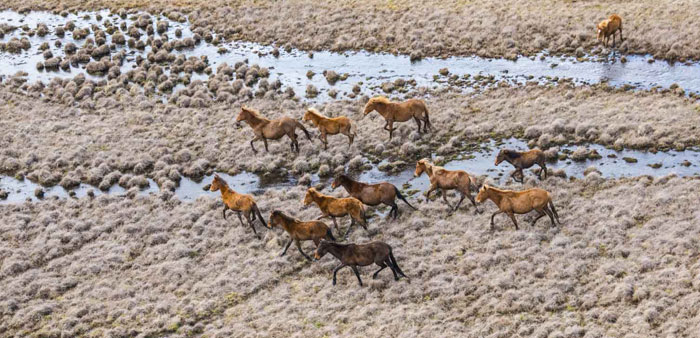
New aerial footage and eyewitness accounts from iconic Kosciuszko National Park reveals horrific fire damage and the survival of huge numbers of feral horses now pushing threatened species closer to extinction,
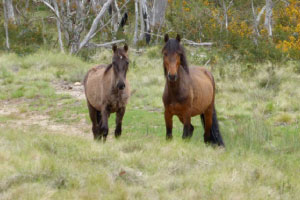
Volunteer firefighter and wildlife carer calls for all-out attack on feral animals in fire zones scorched by this summer’s catastrophic bushfires.
Efforts to save Australian wildlife from the impacts of catastrophic bushfires will fail unless the control of foxes, feral cats, horses and deer are a major part of wildlife disaster recovery plans, the Invasive Species Council warned today.
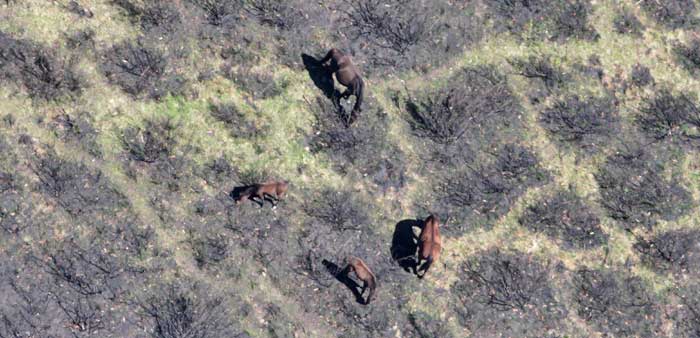
The failure to control exploding numbers of feral horses in Kosciuszko National Park raises serious animal welfare issues as the park comes under threat from bushfire.
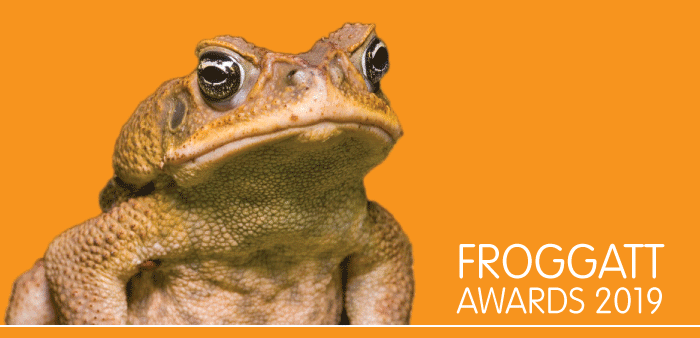
This year’s national Froggatt Awards, which are named in honour of the man who warned Australia of the dangers of releasing the cane toad into the country, have been announced.

A review of Australia’s EPBC Act finds it is failing to address the main threats to nature.

The Invasive Species Council welcomes the Victorian Supreme Court’s decision to protect the Alpine National Park from growing horse impacts but is concerned the possibility of further legal action will delay the inevitable.

Those opposed to action on Victoria’s feral horse problem are back in court today, a last ditch effort to delay the inevitable.

Resignation of top scientists puts spotlight on refusal to take scientific advice about the environmental disaster that will unfold as a result of Snowy 2.0.

The dumping of a proposed import levy is a huge setback for Australia’s biosecurity system.

Parks Victoria will fully reinstate its feral horse control efforts to help limit escalating horse damage in the bushfire affected Australian Alps after success in a federal court case.

The Tasmanian government must develop a comprehensive feral deer management strategy that reduces the destructive impacts of deer and protects the environment and farmers.

Our joint report with Monash University reveals environmentally destructive ants, bees and wasps could be hitching a ride into Australia on an international bug superhighway.

A post-bushfire plan to remove feral horses from three areas in Kosciuszko National Park is an important step towards recovery.

Wildlife recovery efforts from the recent bushfires will be hampered if the NSW government fails to deal with environmentally destructive feral horses.

New aerial footage and eyewitness accounts from iconic Kosciuszko National Park reveals horrific fire damage and the survival of huge numbers of feral horses now pushing threatened species closer to extinction,

Volunteer firefighter and wildlife carer calls for all-out attack on feral animals in fire zones scorched by this summer’s catastrophic bushfires.
Efforts to save Australian wildlife from the impacts of catastrophic bushfires will fail unless the control of foxes, feral cats, horses and deer are a major part of wildlife disaster recovery plans, the Invasive Species Council warned today.

The failure to control exploding numbers of feral horses in Kosciuszko National Park raises serious animal welfare issues as the park comes under threat from bushfire.

This year’s national Froggatt Awards, which are named in honour of the man who warned Australia of the dangers of releasing the cane toad into the country, have been announced.

A review of Australia’s EPBC Act finds it is failing to address the main threats to nature.

The Invasive Species Council welcomes the Victorian Supreme Court’s decision to protect the Alpine National Park from growing horse impacts but is concerned the possibility of further legal action will delay the inevitable.

Those opposed to action on Victoria’s feral horse problem are back in court today, a last ditch effort to delay the inevitable.

Resignation of top scientists puts spotlight on refusal to take scientific advice about the environmental disaster that will unfold as a result of Snowy 2.0.

The dumping of a proposed import levy is a huge setback for Australia’s biosecurity system.

Parks Victoria will fully reinstate its feral horse control efforts to help limit escalating horse damage in the bushfire affected Australian Alps after success in a federal court case.

The Tasmanian government must develop a comprehensive feral deer management strategy that reduces the destructive impacts of deer and protects the environment and farmers.

Our joint report with Monash University reveals environmentally destructive ants, bees and wasps could be hitching a ride into Australia on an international bug superhighway.

A post-bushfire plan to remove feral horses from three areas in Kosciuszko National Park is an important step towards recovery.

Wildlife recovery efforts from the recent bushfires will be hampered if the NSW government fails to deal with environmentally destructive feral horses.

New aerial footage and eyewitness accounts from iconic Kosciuszko National Park reveals horrific fire damage and the survival of huge numbers of feral horses now pushing threatened species closer to extinction,

Volunteer firefighter and wildlife carer calls for all-out attack on feral animals in fire zones scorched by this summer’s catastrophic bushfires.
Efforts to save Australian wildlife from the impacts of catastrophic bushfires will fail unless the control of foxes, feral cats, horses and deer are a major part of wildlife disaster recovery plans, the Invasive Species Council warned today.

The failure to control exploding numbers of feral horses in Kosciuszko National Park raises serious animal welfare issues as the park comes under threat from bushfire.

This year’s national Froggatt Awards, which are named in honour of the man who warned Australia of the dangers of releasing the cane toad into the country, have been announced.
Get our blog the Feral Herald delivered to your inbox.
Our protected areas are being trashed, trampled, choked and polluted by an onslaught of invaders. Invasive species are already the overwhelming driver of our animal extinction rate, and are expected to cause 75 of the next 100 extinctions.
But you can help to turn this around and create a wildlife revival in Australia.
From numbats to night parrots, a tax-deductible donation today can help defend our wildlife against the threat of invasive weeds, predators, and diseases.
As the only national advocacy environment group dedicated to stopping this mega threat, your gift will make a big difference.
A silent crisis is unfolding across Australia. Every year, billions of native animals are hunted and killed by cats and foxes. Fire ants continue to spread and threaten human health. And the deadly strain of bird flu looms on the horizon. Your donation today will be used to put the invasive species threat in the media, make invasive species a government priority, ensure governments take rapid action to protect nature and our remarkable native wildlife from invasives-led extinction, death and destruction.
If you are having trouble submitting a form, please read this guide.
Please fill out the following form and one of our team will be in contact to assist as soon as possible. Please make sure to include any helpful information, such as the device you were using (computer, tablet or mobile phone) and if known, your browser (Mozilla Firefox, Chrome, Safari etc)
"*" indicates required fields
Dear Project Team,
[YOUR PERSONALISED MESSAGE WILL APPEAR HERE.]
I support the amendment to the Kosciuszko National Park Wild Horse Heritage Management Plan to allow our incredible National Parks staff to use aerial shooting as one method to rapidly reduce feral horse numbers. I want to see feral horse numbers urgently reduced in order to save the national park and our native wildlife that live there.
The current approach is not solving the problem. Feral horse numbers have rapidly increased in Kosciuszko National Park to around 18,000, a 30% jump in just the past 2 years. With the population so high, thousands of feral horses need to be removed annually to reduce numbers and stop our National Park becoming a horse paddock. Aerial shooting, undertaken humanely and safely by professionals using standard protocols, is the only way this can happen.
The government’s own management plan for feral horses states that ‘if undertaken in accordance with best practice, aerial shooting can have the lowest negative animal welfare impacts of all lethal control methods’.
This humane and effective practice is already used across Australia to manage hundreds of thousands of feral animals like horses, deer, pigs, and goats.
Trapping and rehoming of feral horses has been used in Kosciuszko National Park for well over a decade but has consistently failed to reduce the population, has delayed meaningful action and is expensive. There are too many feral horses in the Alps and not enough demand for rehoming for it to be relied upon for the reduction of the population.
Fertility control as a management tool is only effective for a small, geographically isolated, and accessible population of feral horses where the management outcome sought is to maintain the population at its current size. It is not a viable option to reduce the large and growing feral horse population in the vast and rugged terrain of Kosciuszko National Park.
Feral horses are trashing and trampling our sensitive alpine ecosystems and streams, causing the decline and extinction of native animals. The federal government’s Threatened Species Scientific Committee has stated that feral horses ‘may be the crucial factor that causes final extinction’ for 12 alpine species.
I recognise the sad reality that urgent and humane measures are necessary to urgently remove the horses or they will destroy the Snowies and the native wildlife that call the mountains home. I support a healthy national park where native species like the Corroboree Frog and Mountain Pygmy Possum can thrive.
Dear Project Team,
[YOUR PERSONALISED MESSAGE WILL APPEAR HERE.]
I support the amendment to the Kosciuszko National Park Wild Horse Heritage Management Plan to allow our incredible National Parks staff to use aerial shooting as one method to rapidly reduce feral horse numbers. I want to see feral horse numbers urgently reduced in order to save the national park and our native wildlife that live there.
The current approach is not solving the problem. Feral horse numbers have rapidly increased in Kosciuszko National Park to around 18,000, a 30% jump in just the past 2 years. With the population so high, thousands of feral horses need to be removed annually to reduce numbers and stop our National Park becoming a horse paddock. Aerial shooting, undertaken humanely and safely by professionals using standard protocols, is the only way this can happen.
The government’s own management plan for feral horses states that ‘if undertaken in accordance with best practice, aerial shooting can have the lowest negative animal welfare impacts of all lethal control methods’.
This humane and effective practice is already used across Australia to manage hundreds of thousands of feral animals like horses, deer, pigs, and goats.
Trapping and rehoming of feral horses has been used in Kosciuszko National Park for well over a decade but has consistently failed to reduce the population, has delayed meaningful action and is expensive. There are too many feral horses in the Alps and not enough demand for rehoming for it to be relied upon for the reduction of the population.
Fertility control as a management tool is only effective for a small, geographically isolated, and accessible population of feral horses where the management outcome sought is to maintain the population at its current size. It is not a viable option to reduce the large and growing feral horse population in the vast and rugged terrain of Kosciuszko National Park.
Feral horses are trashing and trampling our sensitive alpine ecosystems and streams, causing the decline and extinction of native animals. The federal government’s Threatened Species Scientific Committee has stated that feral horses ‘may be the crucial factor that causes final extinction’ for 12 alpine species.
I recognise the sad reality that urgent and humane measures are necessary to urgently remove the horses or they will destroy the Snowies and the native wildlife that call the mountains home. I support a healthy national park where native species like the Corroboree Frog and Mountain Pygmy Possum can thrive.